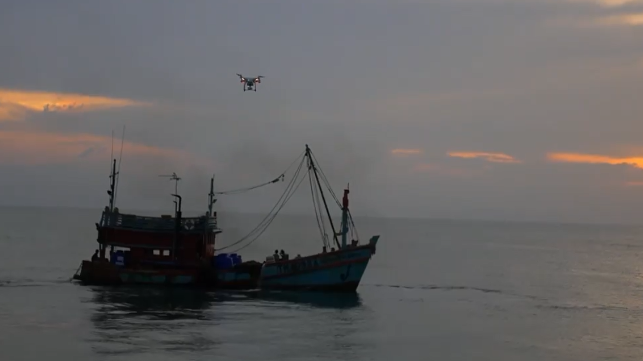Autonomous-System Contest Offers $2M Bounty for Finding a Ship

Abu Dhabi's Advanced Technology Research Council (ATRC) holds a high-profile robotics challenge every two years, and the next edition will be dedicated to a very specific maritime security scenario - one that could have real applications in the Persian Gulf.
The council runs the Mohamed Bin Zayed International Robotics Challenge, and the 2023 edition of its contest will award more than $3 million in prize money for systems that can hunt down and find a ship in a GNSS-denied environment. The first-prize winner will take home $2 million; second prize is $500,000; and third prize is $250,00. All of the other teams that make it to the demonstration phase will split a $500,000 prize pool.
The competition has a dual purpose: the first is to address technical problems in autonomy and robotics, and the second is to find solutions to a real-world challenge. The contest is open to international universities, research institutions, companies and individuals from all over the world.

that matters most
Get the latest maritime news delivered to your inbox daily.
Successful entrants will require technology for sophisticated, autonomous coordination among multiple unmanned aerial vehicles (UAVs) and unmanned surface vessels (USVs). The objective is for a swarm of UAVs to identify a target vessel out of a group of several similar vessels in open waters, without the benefit of GNSS. The UAVs must then offload items from the target vessel onto a USV, including a heavy object which will require multiple USVs to move. This is a new form of teaming exercise in autonomous robotics, and it is open-ended, leaving each contestant free to pick their own approach.
“For countries with long coastlines, ensuring maritime safety requires significant investment in sophisticated equipment and highly trained personnel. Using advanced robotic systems can not only help reduce costs, but also handle some of the often-dangerous tasks performed by humans. The motivation for holding the MBZIRC Maritime Grand Challenge is to take the technology out of the laboratory and test it in a real-world environment to see what is possible,” said Dr. Arthur Morrish, Chief Executive of the Advanced Technology Research Council's ASPIRE program.
The contest organizers are expecting about 150 entrants, including teams from Carnegie Mellon University, SAE International and Northwestern University.
In exchange for the prize money, the top three winners will grant a non-exclusive, perpetual, royalty-free license for their IP to the ASPIRE program. ASPIRE may use the IP to address "real-life maritime problems," potentially including UAE national security applications, or may sub-license its use to third parties.
